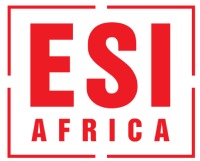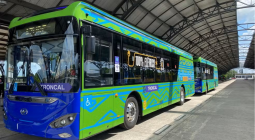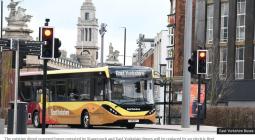Africa: Electric bus market accelerates with major projects
The electric bus sector in Africa is projected to grow at a compound annual growth rate (CAGR) of 14.10% between 2025 and 2034
Electric buses are slowly starting to become more commonplace across some of Africa’s major cities and metropolises – from Cape Town in South Africa, to Kenya’s capital city Nairobi, these electric vehicle (EV) people movers are offering a greener public transport commute.
In selected data made available by Research and Markets in its July release of the Africa Electric Bus Market Outlook Report and Forecast 2025-2034, the organisation reported that Africa’s electric bus market size reached approximately $1.60 billion in 2024.
The sector is projected to grow at a compound annual growth rate (CAGR) of 14.10% between 2025 and 2034, reaching a value of $5.98bn by 2034.
“Battery electric vehicles are anticipated to account for a significant Africa electric bus market share owing to the various advantages offered by the vehicles as opposed to plug-in hybrid electric vehicles [EVs] and fuel cell electric vehicles.
“Battery electric buses produce zero tailpipe emission and are also aiding the governments in Africa in reducing operational costs for public transport. Presence of various key market players and their increased efforts towards the development of battery electric buses is further supporting the segment growth,” said Research and Markets.
The organisation said South Africa is expected to account for a significant share of the electric bus market in Africa in the coming years.
“This growth can be attributed to the increased governmental efforts towards boosting connectivity within the country in a cost efficient and environment friendly manner.
“Electric buses help in lowering the operational costs for public transportation systems and assist in creating local jobs. Such buses have maximum torque which enables the driver to accelerate more responsively. These advantages are boosting the Africa electric bus market demand.”
This e-bus charge in South Africa is being led by Golden Arrow Bus Services in Cape Town – as of March, the first 20 buses have hit the road, with 100 more expected by the end of 2025.
Electric bus rollout in Egypt
More recently, the European Bank for Reconstruction and Development (EBRD) announced that it is supporting the launch of an inter-city electric bus fleet in Egypt through a €10.6 million loan to Go Bus for Transport, the country’s first privately owned inter-city bus company.
The EBRD said the loan will benefit from 10% first-loss risk cover provided by the EU through its European Fund for Sustainable Development Plus (EFSD+) initiative under the Municipal Infrastructure and Industrial Resilience guarantee programme.
Through this loan, Go Bus will expand its operations and renew its fleet by acquiring up to 30 new buses for its inter-city services, as well as six electric micro-buses for shorter routes and three other electric vehicles for intra-city journeys.
“Introducing electric vehicles will provide a cleaner, more sustainable alternative, easing congestion and reducing emissions, with strong potential for replication across Egypt’s governorates,” said EBRD.
Training and technical know-how part of the electric bus project in Egypt
The loan will be accompanied by a technical cooperation package financed through the EBRD’s Southern and Eastern Mediterranean Multi-Donor covering legal aspects of the project.
In addition to that technical cooperation, a grant will be provided under the EU’s EFSD+ Municipal, Infrastructure and Industrial Resilience programme to support corporate governance.
The project will include training opportunities for new fleet drivers, equipping them to prevent and respond to gender-based violence and harassment.
This will help to address safety risks in Egypt’s transport system, with a UN study having found that more than 86% of women reported feeling unsafe while using the country’s public transport, said EBRD.
Go Bus was established in 1998 as Egypt’s first privately owned inter-city bus company, fully owned by the Nassif family. The company currently operates 29 routes throughout Egypt, including 16 originating from Cairo, taking people to destinations such as Alexandria, the north coast, Marsa Allam, Luxor and Dahab, serving approximately 1.9 million passengers annually.
Africa’s cities embrace the electric bus movement
Research and Markets said several African capitals and regional operators are now operating or taking delivery of battery electric buses (BRT/e-bus fleets and pilots).
“Notable activity (confirmed deliveries or firm orders) is concentrated in East Africa (Kenya, Rwanda, Ethiopia), North Africa (Egypt, Morocco, Tunisia), West Africa (Senegal, Côte d’Ivoire, Ghana, Nigeria) and southern Africa (South Africa). Market studies show an accelerating continental market (2024–25 base) with strong projected CAGR through the 2030s.”
11 countries leading the e-bus pack
Ethiopia
Addis Ababa has taken delivery of ~100 locally-assembled electric buses (Golden Dragon/Chinese suppliers) to run on BRT corridors; these were formally delivered and put into service in early-to-mid 2025. Ethiopia is also witnessing rapid wider EV uptake driven by policy and local assembly.
Kenya & Rwanda
Start-up operator BasiGo has scaled quickly from pilots to commercial operations; recent reporting and company announcements put total deployed buses across Kenya and Rwanda at around 100 e-buses (and ongoing assembly/scale plans). BasiGo is also pursuing local assembly partnerships (King Long/other Chinese OEM ties).
Egypt
Egypt has major World Bank-backed and government procurement programmes. Reporting references the purchase/deployment of 100 e-buses for (Cairo) BRT operations and other sources say national procurements in the order of more than 180 to 200 buses under recent rounds of purchases and financing.
Senegal
Dakar’s new BRT is a flagship e-bus project for Africa: plans and project documents indicate a fleet of around 144 articulated electric buses to operate the new corridor, with operations phased into 2024–2025.
Côte d’Ivoire
Abidjan’s BRT rollout includes plans for over 100 articulated electric buses as part of a major BRT scheme; separate fleet renewals also include EV coaches/minibuses (Iveco deliveries include a tranche of electric coaches).
South Africa
Large operators are placing big orders (.g Golden Arrow Bus Services in Cape Town ordered 120 BYD e-buses, with the first ~20 already deployed and further deliveries scheduled through 2024–25). Other city/regional pilots and tenders for electric buses have been announced across the country.
West, North Africa increasing its share of electric buses
Ghana
Ghana has launched pilots under Metro Mass Transit and government pilots: reporting noted inauguration of the first batch (10 of a planned larger procurement) and a national electric mobility roadmap.
Nigeria
Lagos and private partners have been trialling electric mass-transit buses (50 buses were reported as a first tranche in earlier announcements). Several private-public pilots (LAMATA, Oando Clean Energy, others) are active.
Morocco & Tunisia
Morocco: national tenders and plans include procurement packages that mix conventional buses and electric buses (eg tender lines that include a small number of e-buses now and scaled purchases up to 2030). Tunisia: large fleet renewals are underway (many buses arriving from China), and the government has signalled incentives and partnerships (BYD interest). Precise e-bus counts are still emerging as fleets are refreshed; both countries have clear plans to scale electrification.
Growth across Africa
Research and Markets also pointed out that there is no single public continental registry of e-bus fleets – most numbers come from project announcements, operator statements and market reports.
“That means counts are approximate and changing rapidly. Based on the named projects and market reporting, there are several hundred confirmed e-buses already in operation in Africa (hundreds in East/North/West projects listed) and orders/commitments in the low hundreds to thousands…” ESI
Cover photo: Cape Town’s Golden Arrow Bus Services has deployed 20 electric buses so far. Source: Golden Arrow Bus Services




